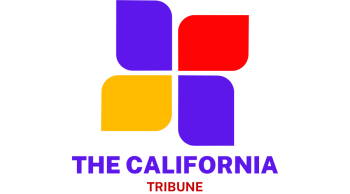Revised Office for National Statistics numbers for third quarter 2024 show UK’s economy stagnated in last quarter. Figures for this time are out at already challenging some of the UK’s economic metrics as seen in surprise reverse experienced in October and another statistic; the highest eight months’ inflation rate has just been reported.
Economic Stagnation and Revamped Numbers
The revised data showed no growth for July to September. This is a sobering moment for the government since it has emphasized economic recovery as the central focus of its attention. The ONS also corrected its estimates of April to June growth downward from 0.5% to 0.4% as performance of sectors like hospitality, legal services, and advertising were more weakly than expected.
Liz McKeown, head of economic statistics at the ONS, said: “Real household disposable income per head showed no growth.” She said: “There is still quite a way to go for households.”
Business and Consumer
Confederation of British Industry said concerns over the economy have continued. The CBI’s latest survey reported an expected sharp fall in activity across industries during early 2025. According to Alpesh Paleja of the CBI, the interim deputy chief economist, expectations are at their weakest in over two years.
Similar was the warning given by British Retail Consortium that there could be a “January spending squeeze,” due to plummeting consumer confidence. According to Helen Dickinson, the CEO of BRC, businesses will be forced to take tough decisions such as raising prices or cost-cutting measures through closing shops and freezing hiring.
Budget Impacts and Business Sentiment
The October Budget has increased employer national insurance contributions and a higher minimum wage, which have made business groups sound the alarm over rising costs. Industry leaders say it may lead to job losses or price hikes when they take effect in April 2025.
Mick Dore, general manager of the Alexander pub in Wimbledon, said his firm was under pressure from hikes in contributions for staff. Though he was optimistic about the future prospects, he said, “I’ve been around a long time, and every time they’ve told me the end is nigh, it never has been.
Labour would deliver the fastest sustained growth of the G7 nations with their spending and reform. But the Shadow Chancellor Mel Stride is demanding action today: “the warning lights are flashing” about Britain’s future economic course.
Economists are still in the doldrums trying to guess the trajectory that UK’s economy is following. Simon French of Palmore Labarum pointed out that a possible loss of momentum can also be a typical post-election slowdown or an indicator of deeper issues potentially leading towards recession.
Even though interest rates have capped spending and investment, in the next months, it is most likely that the downward movement will trigger the second half of 2025. According to Paul Dales of Capital Economics,
The Bank of England Held Interest Rates
Recently, the Bank of England decided to maintain interest rates constant and cited weaker-than-projected economic performance. In this respect, the voting is a concern for a stagnation in the final quarter of 2024, which adds to a year of uncertainty.
Therefore, in this respect, the calls for targeted measures to spur growth and revive confidence among businesses and households grow louder as they prepare for challenges in 2025.
The post UK economy stalls between July and September, revised data shows appeared first on Native Springs News.
About Native Springs
Native Springs is a leading digital platform dedicated to delivering high-quality, engaging content across a wide range of topics. From the latest in technology, economy, and sports to travel, gadgets, and global news, Native Springs keeps readers informed and inspired. With a commitment to authenticity and excellence, we connect our audience to the stories that matter most in today’s fast-paced world.
For more information, visit Native Springs News.






